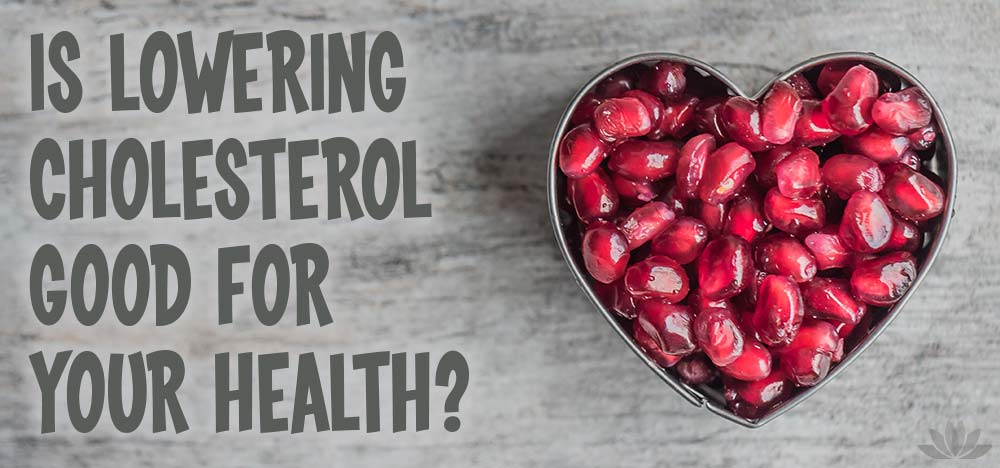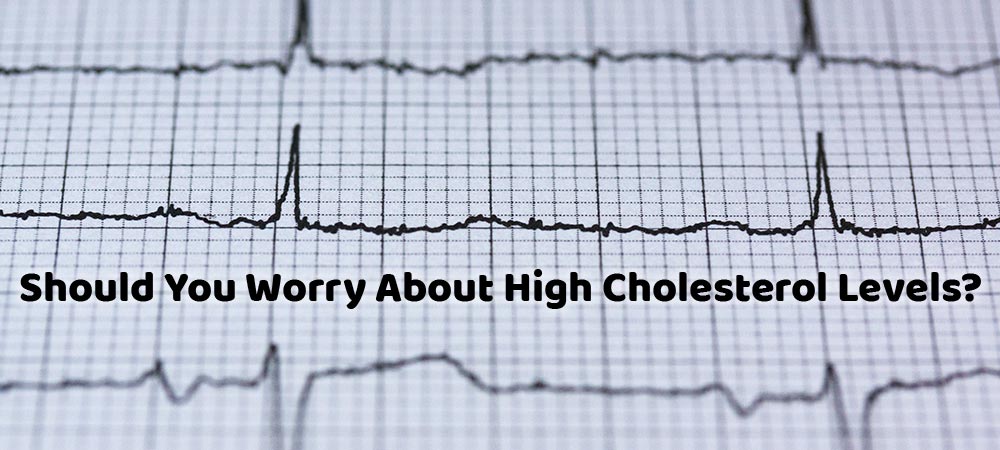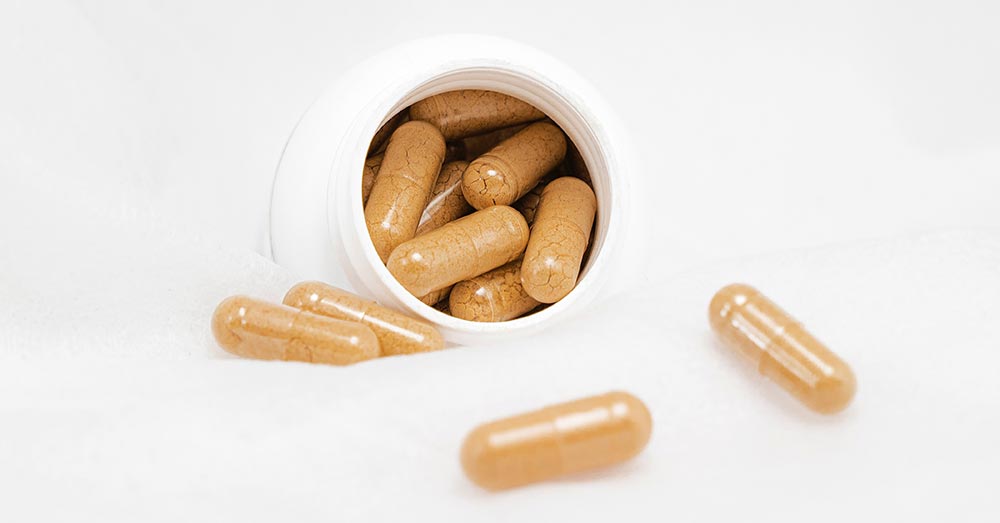
Is Lowering Cholesterol Good For Your Health?
Remember when eggs were the devil?
Growing up at a time where “low fat” was the latest nutrition advice, eggs were vilified for their “high” cholesterol content and butter was considered contraband because of its saturated fat. The makers of fake food were thrilled with their low fat, low cholesterol marketing slogans. I remember in medical school my daily diet consisted of a breakfast sandwich, a sandwich for lunch and a massive bowl of pasta with lean ground turkey and some veggies for dinner. I was also snacking on fruit or crackers or chips. I thought that as long as the food was “low fat” I was eating healthy. The result? I was a hypoglycemic mess. Low blood sugar swings were constant. Hangry was my general mood. Sleep was disrupted.
I wasn’t the only one who suffered from that wholly misguided and frankly deceptive advice. What was the result of this low fat, low cholesterol advice on a national level? The nation experienced a tsunami of obesity, diabetes, heart disease, cancer and neurodegenerative disease.
What has changed since that time?
We now know that:
- There is no link between the cholesterol you eat and the level of cholesterol in your blood.
- Your body is responsible for producing the majority of cholesterol found in your blood.
- Lowering dietary intake of healthy fats and cholesterol can lead to MORE heart and brain disease. This information was suppressed for decades by researchers who were trying to prove their theory that low fat was better for your health.
Fact check: Your brain needs cholesterol
- 25% of the body’s total cholesterol can be found in the brain
- Cholesterol makes up every cell membrane to both protect the cell from damage and to provide normal structural support
- You need cholesterol to grow myelin, the protective sheath around your nerves
- Depriving the brain of cholesterol directly affects all the machinery needed to release neurotransmitters
- Higher levels of cholesterol and LDL were correlated with better memory performance in a study of elderly people without dementia
- Statins that lower cholesterol indiscriminately, increase your risk of developing Parkinson’s disease
Fact check: Your body needs cholesterol
- Cholesterol helps to make bile acids needed to absorb brain-building fats and fat soluble vitamins like A, D, E and K.
- Cholesterol is needed to make Vitamin D, which as you know is involved in hundreds of critical body functions.
- Cholesterol is the building block of all hormones.
- Cholesterol is needed to build new tissue and repair damaged tissue throughout the body.

Should You Worry About Having High Cholesterol Levels?
The short answer is, it depends. The cholesterol that we create in our body CAN be related to disease, if we don’t keep that cholesterol healthy.
- LDL or low density lipoprotein, often called the “bad cholesterol” is not necessarily bad. These proteins simply carry cholesterol and triglycerides away from the liver where they are made and bring them through the blood to muscles and organs for cellular function and repair.
- LDL molecules only become problematic if they become damaged. The longer these LDL particles travel around without being recycled in the liver, the more likely they are to be oxidized or damaged and then stick to artery walls. These damaged forms of LDL penetrate the vessel wall and initiate a cascade of inflammation and immune cell activity that will ultimately form a plaque.
- Cholesterol is the passenger in these LDL particles and is often just an innocent bystander. It’s the proteins themselves, when damaged, that can create cardiovascular disease.
- Why would the LDL particles NOT be recycled back to the liver? When the liver is busy digesting carbs, alcohol or other toxins, it doesn’t prioritize recycling lipoproteins. A recent study of women on a high-carb, low-fat diet saw nearly a 30% increase in levels of oxidized cholesterol even though their total cholesterol levels didn’t change.
- Measure your LDL-particle number to find out if you have higher than normal small, dense LDL particles floating through your system. This is NOT tested on a normal cholesterol panel.
The typical Western diet full of highly processed carbs, high in sugar and industrial seed oils increase the damage to LDL particles.
How To Improve LDL Recycling?
You must reduce the load on your liver to achieve a healthier lipid profile.
- Improve your insulin sensitivity by reducing processed grains, inflammatory oils and added sugars, especially in the form of fructose found in fruits, fruit juices, corn syrup and agave syrup. These are particularly hard for the liver to process and can lead to tissue damage.
- Consume more extra-virgin olive oil which reduces the accumulation of fat in the liver
- Reduce “added” saturated fats. Saturated fats can lower LDL receptors on the liver thus raising circulating LDL.
- Load up on fiber and non-starchy veggies. This slows the absorption of carbs and fat giving the liver more time to process a meal.
- Reduce alcohol – both a toxin and a sugar to the liver, double whammy.
- Consider intermittent fasting to boost LDL recycling.
- Focus on higher carb, low fat meals immediately AFTER a workout.
Check your gut: You may have high levels of small,dense LDL particles because your gut is out of whack
- Our intestines contain huge amounts of bacteria, most of which are friendly and perform important functions for us.
- When the intestinal environment becomes imbalanced, certain toxic bacterial fragments known as endotoxins can leak into our blood circulation and cause damage.
- One way to reduce the damage from these endotoxins is to release LDL. These protein carriers serve an antimicrobial function and are released by the liver when the liver senses that endotoxins have entered the bloodstream.
- The LDL binds these toxins and neutralizes them thus protecting the body from harm.
- High levels of LDL on a blood test may simply be a protective response to a chronically leaky, injured gut lining and an imbalanced microbiome.
How to protect your gut to support healthy LDL levels:
- Up the fiber — dark leafy greens (spinach, kale) and members of the allium family (onions, leeks, shallots, garlic) can support the beneficial bacteria
- Add some probiotic containing foods — kimchi, sauerkraut, and small amounts of kombucha are great options
- Add polyphenols — extra-virgin olive oil, coffee, dark chocolate and berries are favorites to restore gut barrier function
- Avoid sugar, especially added fructose — this increases intestinal permeability which can allow endotoxins to leak into the circulation.
- Avoid wheat and processed grains — gluten can increase intestinal permeability as well.
To Statin or Not to Statin – that is the question
There is definitely no easy answer and this is not necessarily applicable to your circumstance, but consider the following facts:
- Statins do little to reduce the amount of small LDL particles, which is the most risk-promoting, toxic variant of LDL.
- The strongest data in support of statin use is for SECONDARY PREVENTION: preventing a heart attack AFTER you have already had one.
- Statins reduce your risk of having a second heart attack through its anti-inflammatory effect, independent of its effect on cholesterol. Newsflash: there are other ways to reduce inflammation in your body without the associated statin side effects.
- Drug-company funded studies expanded statin use to PRIMARY PREVENTION: preventing a heart attack in someone who has never had one. This basically labeled millions of Americans with no heart problems as now having a “disease” known as high cholesterol.
- Most people using statins are healthy individuals and would likely never have a heart attack to begin with.
What are the downsides of using a statin?
- Statins cross the blood-brain barrier and can drain the brain of its cholesterol. We already discussed how important cholesterol is for brain function.
- Statins deplete coQ10, a nutrient needed for heart and brain function. Low CoQ10 levels have been linked to Alzheimer’s disease.
- Statin use can lead to muscle pain 10% of the time by actually destroying muscle tissue.
- Statins can lead to memory problems and Parkinson’s disease.
- Statins can double your risk for diabetes.

Are statins effective in adults with no prior history of cardiac disease?
Now we have to get into statistics. I know, BORING but hear me out. We can measure the effectiveness of a drug by looking at its NNT value – “number needed to treat.” For statins, the NNT tells you how many people you would need to treat in order to prevent one cardiac event?
The NNT for statins in PRIMARY prevention is between 100-150. You would have to treat between 100-150 people for 5 years to prevent one cardiac event.
Seriously? If you had a UTI, and the drug your doctor gave you had an NNT of 100, that means that there would be a 1% chance that this drug would work for your UTI. How good is that?
★ Bottom line:
➔ Cholesterol is necessary for optimal function of the immune system, hormone production, brain function and body function.
➔ LDL particles transport cholesterol around the body but are very vulnerable to the highly inflammatory Western diet
➔ LDL damage is usually related to poor recycling. Reducing the load on the liver will improve LDL recycling and will reduce the formation of small oxidized LDL particles.
➔ Check your LDL-p number and small, dense LDL numbers. Ask for an Advanced Cardiac panel or NMR panel.
Statins have a lot of undesirable side effects including muscle damage, memory loss, increased diabetes risk, cognitive decline, and depletion of coQ10.
➔ In patients with no history of cardiac disease, 100-150 people would need to take a statin for 5 years to prevent one cardiac event.
➔ In patients who have had a prior heart attack, statins reduce the risk of a subsequent cardiac event by reducing inflammation, not necessarily by lowering cholesterol levels.
➔ Gut health may lead to increased LDL particle numbers as a protective mechanism against the injury from endotoxins.
➔ Action steps to improve healthy LDL particles:
- Avoid seed oils, processed carbs, alcohol, sugar and fructose
- Prioritize fibery vegetables, berries, whole foods and extra-virgin olive oil
- Reduce or eliminate alcohol
- Consider intermittent fasting
- Lower the inflammation in your body
★ Talk to your doctor – be armed with information and ask questions when presented with the recommendation of using a statin.
Please Share the Health if you liked what you read!!!
For more information about my wellness programs and my practice, check out my website drsadaty.com. Hey Look! You are already here…
Ready for the legal disclaimer? Information offered here is for educational purposes only and does not constitute medical advice. As with any health recommendations, please contact your doctor to be sure any changes you wish to consider are safe for you!
You are a wealth of important information! Thank you ~~ I will be sharing this with others…
When it was suggested that I take statins I said NO. I’m glad I didn’t . The problems are more than the assistance
One of the best articles I’ve ever read on this topic. Thanks dr. Sadaty! Xoxo, Erica